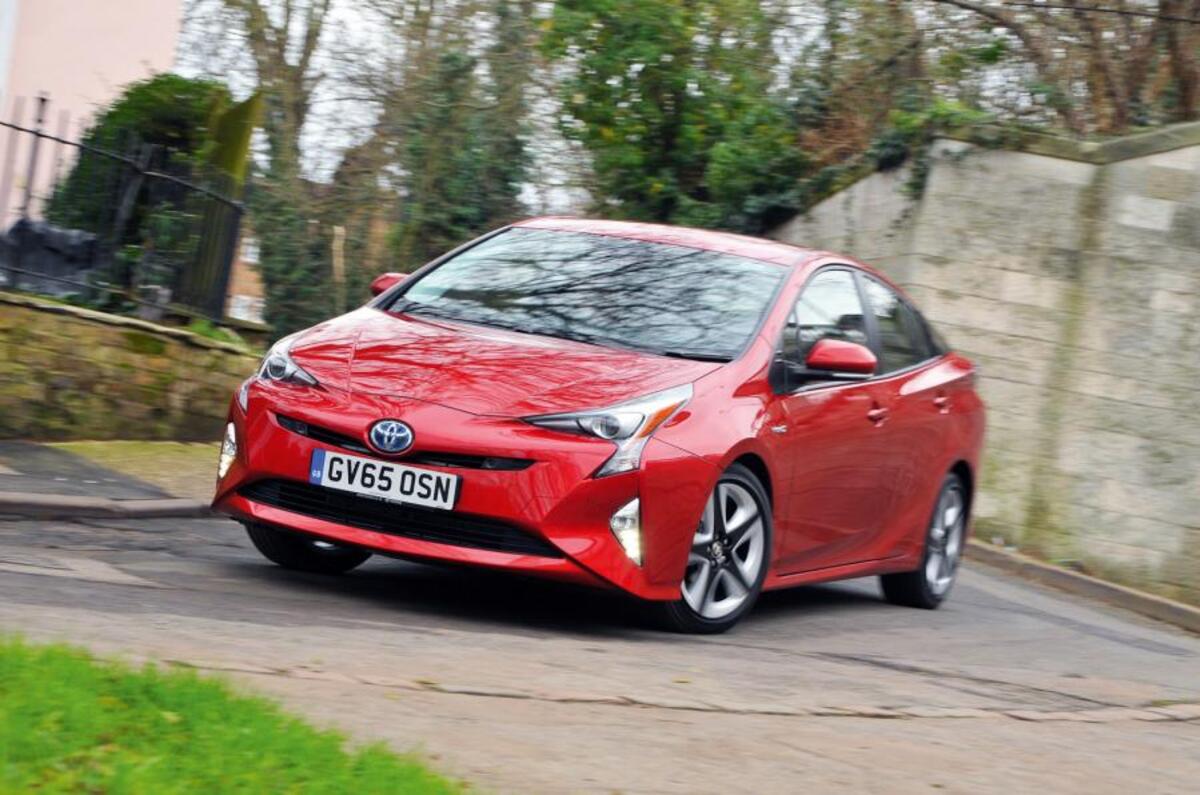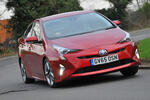Toyota expects the internal combustion engine to be dead by 2050, and power only about 10% of cars as part of hybrid systems from 2040 onwards.
The prediction, announced by Seigo Kuzumaki, Toyota’s head of advanced R&D and engineering, re-emphasises that car makers are expecting global emissions regulations to tighten, and electric car development to accelerate, at a pace that will end the sale of combustion engined cars globally by that point.
Toyota to introduce game-changing electric vehicle in 2022
“We expect that by 2050 we will have reduced CO2 emissions from vehicles by 90% compared to the figure in 2010,” said Kuzumaki. “To achieve that from 2040 simple internal combustion engined cars will not be made, but they may be the basis of some hybrid or plug-in hybrid cars.”
Kuzumaki’s comments also reconfirm that the announcement in July by UK Environment Secretary Michael Gove that the sale of new combustion-engined cars would be banned by 2040 - subsequently clarified the same day to state that new hybrid cars would be allowable - is likely behind car makers’ own planning, because it is in line with Toyota’s goals for both developed and developing economies.
At present, Toyota sells around 43% of all electrified vehicles globally, with the Prius being the best selling electrified vehicle in the world, with more than 11m sales to date. The best-selling full electric vehicle, the Nissan Leaf, currently sells around 50,000 units annually.
Toyota is planning the launch the first of a family of electric vehicles from 2020. Although the early models are expected to use lithium ion batteries and fall in line with the industry-standard of around 300 miles of range, it expects to have be able to productionise solid state batteries by “the early 2020s” according to Ise.
The arrival of solid state batteries is seen by Toyota as a key breakthrough in electric car technology; they are smaller, safer and will offer substantially greater performance than today’s units.
“We hold more patents on solid state batteries than any other company,” said Kuzumaki. “We are getting close to developing cars using the technology, and we believe that we will be ahead of our rivals in achieving that.”
Related stories:



Join the debate
Major Fatty
Sounds about right.
So in 30 odd years no IC engines for sale and then another 20 odd years to faze out existing IC and hybrid engines. 2070 maybe for zero IC?
Lanehogger
What about other vehicles?
While there can be no doubt the majority of internal combustion engines are found in cars, and therefore that's where the majority of emssions come from, what about engines in bikes, vans, trucks, buses and trains? All the talk is about cars but is the industry, governments, organisations etc looking at the environmental and health effects of other vehicles as it seems cars are specifcally being targeted as if they're the product of the devil? Look at some cities across the world where 2 stroke bikes are rife and the pollution they cause for example. Or countries where there are very very old diesel trains operating in high quantities, including urban areas, which chuck out massive amounts of emissions, especially in enclosed stations.
john386
Other vehicles
You are right, the media focuses on cars for pollution, but in the world wide scheme of things, they are not the major cause and having zero emission cars will not be the magic wand a lot of the so called green folks and media would have you think.
marshydeluxe
Lanehogger wrote:
It's a complete fair observation to highlight that all the focus is on cars when other forms of transport are just as if not greater polluting. But I suspect this is because there are 35 million cars on the UK's roads and the useage efficiency of them isn't particulary great, i.e. how many cars do you see with 1 person in when its a 5 seater... the majority of the time.
Also public and industrial transport is getting the similar sort of attention but because they aren't consumer products, there is no reason for the OEMs a mass PR campaign on them. Rather they communicate it to the service providers in the industries who can then say how wonderful their hybrid buses are themselves to the wider public.
Make Car Window...
All the above vehicles can be
All the above vehicles can be made electric
Ski Kid
tuk tuks and commercial shipping
Those two stroke tuk tuks all over asia cause one hell of a lot of pollution with burning oil etc.
I agree with others in that all the forrest fires, never mind bonfire night cause more harm.Just 10% of the worlds commercial shipping creates more pollution than all the hgv vehices in the world.Just a plitical correctness thing imhp.Wait till they discover the pollution caused by battery manufacture,increased death due to on awareness that an ev is about to run you over from behind.
typos1
Another non head line, thanks
Another non head line, thanks Toyota for telling us what we know already is likely to happen.
john386
Not dead.
There is too much money in the global economy devoted to oil and manufacturing vehicles to throw it all out of the window in a hissy fit.
Long before 2050, exhaust cleaning stratagies will come into play. So far, EV has a long way to go before it ticks all the boxes, commerical vehicles included. You well may have a majority of hybrids and electric only city driving, but the IC engine is a long way from it's funeral.
xxxx
Predictions
Predictions that far off have come and gone all my life, wasn't oil meant to have run out by now? Anyway chances are the buying public will decide and with EV's pretty much there for the majority, no cheap purchase price option available but as ICE cars don't tick all the boxes no option is 100%
Hopefully petrol, EV's and diesel will all live together, BUT in the right proportion!
Hydrogen cars just went POP
Cobnapint
Better build several thousand nuclear power stations then...
Which, from planning, funding, constructing, allowing for delays and budget cock-ups, take between 10 to 15 years to build - and that's in a modern, wealthy society.
The globe isn't exactly covered with wealthy, modern societies that could build, maintain or even be trusted with nuclear facilities, let alone install the transmission infrastucture to get the amperage required for EV charging to remote locations. So their only recourse is to burn lots and lots of coal or gas - like China is doing at the minute - which is raising the worlds CO2 figures as we speak.
Toyota's R&D boss is talking crap.
Pages
Add your comment